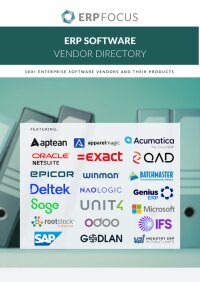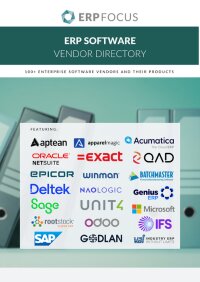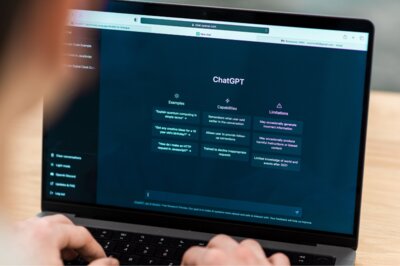ERP Will Never Die but It Could Get a Rebrand
A customer said to me the other day “I hate TLA’s,” we all did the usual giggle and sadly reflected that TLA’s were part of our life in the ERP industry. “To think”, said someone else in the room, “ERP isn’t even really ERP.” It got me thinking: what is the future for ERP, a piece of software whose name doesn’t even describe what it does?
ERP was born from MRP and MRPII; the original concept of needing huge computing power to calculate the required inputs to the manufacturing process based on a given demand. ERP isn’t about that now; we shouldn’t focus on the software or its capabilities, but on what it needs to deliver to businesses. Why does ERP in its current format exist? It exists for two primary reasons:
- To facilitate efficient business processes
- To provide the business with performance information
If software vendors forget these drivers, then they risk becoming extinct, in the same way the railways suffered because they viewed themselves as providers of trains, rather than the ability to get from A to B.
A Hub of Information
In today’s interconnected world, ERP needs to become the hub of information within the business. It needs to meet a new generation of expectations that have been developed since the dawn of the technological revolution. These expectations affect every aspect of what ERP can provide, including how it integrates with third party systems and apps, how it gathers information and how it presents information in an up-to-date accessible way.
In today’s interconnected world, ERP needs to become the hub of information within the business.
ERP needs to use third party systems and best of breed applications to provide a seamless business process and generate the required reporting output. It needs to be able to connect together different organisations within the supply chain and automate transactions between business partners.
As businesses strive to improve, seek out new markets, establish business strategies, report on performance, they need management information they can rely on. To do this, they need systems that can pull together information from different sources, including external sources. Businesses need to be able to see information and run analytic tools over the database to translate the information into something meaningful. That means ensuring the right tools can be integrated. These tools are crucial in providing customers with insights that can change their perception of their business, illuminating the margin they make on different products, profitable customers, where they can reduce stock to free up working capital and so on.
As the nature of our working lives change, so our business processes need to adapt. We now need access to information wherever we are and whenever we want. That means ERP needs to adapt to demands for BYOD programs and offer ERP solutions on mobile platforms.
But it’s not just the platform which is important. The way the information is delivered is also pivotal. The interfaces we are familiar with are informed by social trends and ERP needs to keep up with this. We’re used to streams of live updates rather than static reports and ERP needs to integrate data feeds so that live triggers can be set up of exactly what is going on in real time.
So, will ERP ever die? As long as businesses have complex processes and need large amounts of information analyzed, ERP will be around, but vendors have to recognise that they aren’t in business to supply ERP software, we are in business to facilitate business processes and supply management information. As for the re-brand and change of name, I am open to suggestions, but please, no more TLA’s!
Written by Cathie Hall from K3 Syspro
Free white paper

ERP Software Vendor Directory
Put the most comprehensive ERP vendor directory on your desk today

Featured white papers
-

ERP Requirements template
Plan your ERP selection using our requirements template with 100 features in an editable spreadsheet. Include special requirements and extra detail in this exclusive template.
Download -

70 features to look for in your next ERP
A comprehensive guide to help you identify requirements for your ERP selection
Download
Related articles
-

Top 10 ERP selection criteria (including checklist)
The most important ERP selection criteria you should keep in mind during your selection process.
-

CMMC Compliance: What Aerospace and Defense Manufacturers Need to Know
Key insights on CMMC compliance, deadlines, and securing DoD contracts with CMMC 2.0 certificatio...
-

Intelligent ERP systems: What AI can (and can’t) do
What AI in ERP really means for buyers in 2025

